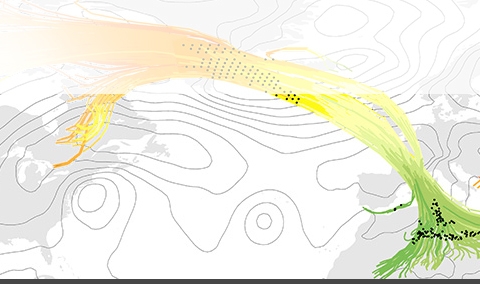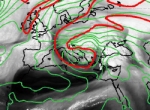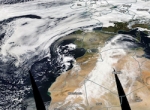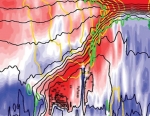Dynamics of extratropical weather systems
In the extratropical latitudes, weather systems such as anticyclones and cyclones host a complex environment where warm and moist air interacts with relatively cold and dry air. We study the dynamical environment that leads to cyclogenesis, the cyclone life cycle and the nature of the flow interaction with the large-scale atmospheric circulation that controls the impact on the surface weather.






